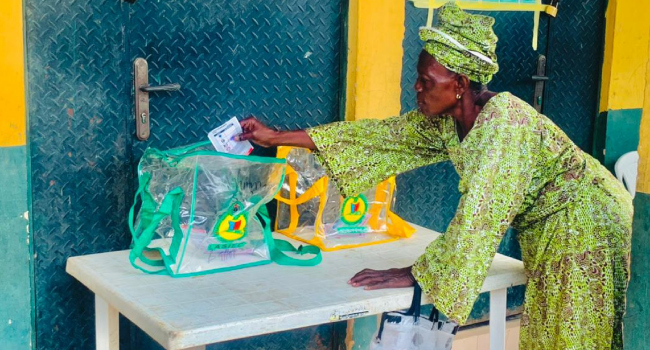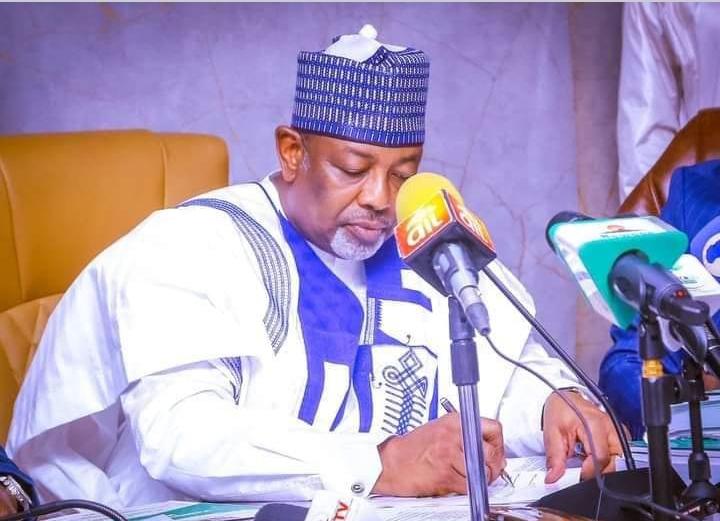On Saturday, millions of registered voters in Lagos State were expected to participate in local government elections to select chairmen and councillors across the state’s 20 Local Government Areas (LGAs) and 37 Local Council Development Areas (LCDAs). But what unfolded was a tale of low voter turnout, delayed logistics, and muted enthusiasm, despite the state’s political and economic significance.
With 7,060,195 registered voters and 13,325 polling units spread across 376 wards, the stakes were high in Nigeria’s commercial capital, a state with over 20 million residents and strong ties to President Bola Tinubu, who served as governor from 1999 to 2007.
Despite assurances from the Lagos State Independent Electoral Commission (LASIEC) that no political party was excluded and 15 out of the 19 registered parties were contesting, voter apathy was stark. Observers and reporters noted alarmingly low participation at numerous polling units across Alausa, Surulere, Ikosi-Isheri, and beyond.
For instance, at Ikosi-Isheri PU 036, only six voters had shown up by 11:20 a.m. Out of 1,229 registered voters at Alausa PU 003, just 20 people voted by 11:45 a.m. Similar trends were observed across other PUs.
Turnout Low, Logistics Lacking
LASIEC Chairperson Justice Bola Okikiolu-Ighile (retd.) attributed the perception of poor turnout to swift voting processes, suggesting voters left quickly after casting ballots. However, numerous incidents of late arrival of materials, stranded electoral officials, and disorganized logistics were also reported.
In Ikosi-Isheri LCDA, officials were left stranded at the commission’s office due to a lack of transport. In Ikeja and Surulere, many youths ignored the elections altogether, preferring to play football on nearby roads.
The use of BVAS (Bimodal Voter Accreditation System) was notably absent, with LASIEC confirming a fallback to manual accreditation in many areas.
Leaders Vote, Bemoan Voter Apathy
Governor Babajide Sanwo-Olu, his wife Ibijoke, Deputy Governor Kadri Hamzat, and Chief of Staff to the President Femi Gbajabiamila all cast their votes around mid-morning.
Gbajabiamila, who voted at Elizabeth Fowler Memorial High School in Surulere, described the elections as peaceful and fair, but lamented the low turnout.
“People don’t fully understand the importance of local government elections, which are even more crucial than others,” he said. “We need more civic education.”
On the recent opposition coalition adopting the African Democratic Congress (ADC), Gbajabiamila welcomed the move as healthy for democracy. On LG autonomy, he stated:
“The ruling was welcomed by all. Full implementation is a work in progress.”
Speaker of the Lagos Assembly Mudashiru Obasa, who voted in Agege, echoed similar sentiments on the opposition, adding that the ruling APC must not take its dominance for granted.
Meanwhile, Surulere LG Chairman and APC candidate Bamidele Yusuf criticised low elite participation.
“We are supposed to learn from the elite, but they mostly stay home during elections,” he said, calling on media to intensify civic awareness.
EFCC, Police, LASIEC in Full Force
The Economic and Financial Crimes Commission (EFCC), led by Zonal Director Michael Nzekwe, monitored polling units across Lagos to prevent vote buying.
A heavy security presence, particularly at the LASIEC headquarters in Yaba, was noted by evening as results collation commenced. The area was locked down by armed police, with over 10 patrol vehicles and 4 armoured trucks observed by reporters.
Justice Okikiolu-Ighile hinted that results might be announced overnight or by Sunday morning, depending on collation speed.
Despite the challenges, there were no major incidents of violence, though isolated reports of voter intimidation and sluggish material deployment were recorded.




